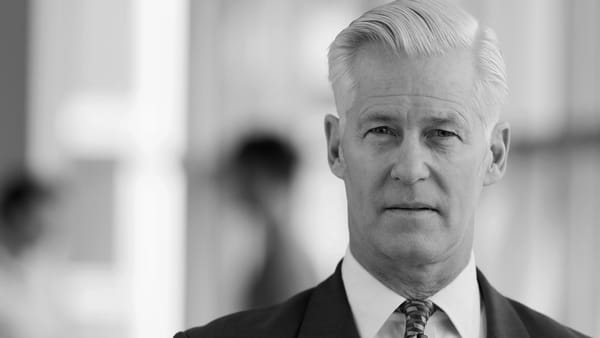The Right Way to Explain Being Laid Off
Every career has its setbacks, and no leader is immune to them. What matters is how you own those moments and articulate a vision for moving forward.

If the market of the last few years has shown us anything, it's that it's not all roses and butterflies. Layoffs happen.
The challenge lies in framing these experiences authentically and constructively during your interview so that you can keep control of your narrative and avoid diminishing your negotiating position.
Two key points to consider:
- Longwinded attempts to skirt around what happened don’t work. Interviewers can see straight through it.
- Cliched, scripted responses come across as just that.
If you don’t take the time to reflect on why a role didn’t work out, you're setting yourself up for trouble. These are questions to anticipate and prepare for.
The reluctance to confront these issues is understandable, as change often feels like failure. But framing it that way does you a disservice. Every transition is an opportunity to move up and to the right, provided you're willing to own it.
Embrace Transparency
Honesty with purpose: The goal is not to dwell on the negatives or pass the blame. Acknowledge the situation candidly. This builds trust and shows self-awareness.
For example:
"[X] leadership wanted to go in a different direction and ultimately that wasn't in my wheelhouse. It became clear that a different strategy was necessary for mutual success. No hard feelings, and I'm rooting for the team."
Highlight Learnings and Growth
Focus on development: Emphasize the insights gained from the experience and how they have contributed to your growth as a leader. Discuss the specific skills or knowledge acquired and how they enhance your readiness for future challenges.
For example:
"The whole experience allowed me to really understand what doesn't work when looking at the Saudi market. Having been through it and got the scars, I'm in a far better position to navigate these waters moving forward. I know it's a market you're considering and there are a lot of things to look out for."
Look Forward and Focus on Alignment
Projecting confidence: Ensure that your explanation is forward-focused, highlighting how past experiences have prepared you for what's next.
For example:
"While my previous role ended due to strategic differences, it provided me with a lot of insights into where I truly add value. I am excited about organization that’s focused on hyper-growth, which is where I really make an impact and was ultimately missing in my last role. It seems like you're firmly in that phase."
Avoid Blame and Negativity
Stay professional: Resist the urge to place blame on former employers or colleagues. Maintain a positive tone and avoid disparaging remarks. Your goal is to remain professional and constructive, even when discussing difficult topics.
Example:
"The departure was a result of evolving company priorities, and I'll be candid and say we didn't see eye to eye on the direction. These things happen - the alignment wasn't there, but we parted on great terms."
Have a Consistent Message
Unified narrative: Your explanation of setbacks needs to be consistent across different conversations. Equally, be honest with your framing, as it may come up in references or backchannel conversations later on in the process.
The Bottom Line
No career is without its bumps, and no leader is perfect. The best candidates - and the best companies - embrace that reality. They use the hard questions to build understanding and alignment.
- Prepare and practice: Develop clear and concise explanations for difficult questions. Practice delivering them with confidence and authenticity so it rolls off the tongue without stalling. Anything that sounds scripted or unauthentic won’t fly. If you fumble, it will sound like you’re trying to hide something.
- Seek feedback: Review your explanations with mentors or colleagues to ensure they convey the intended message without sounding evasive.
- Stay Focused: Keep the conversation directed towards the future direction of the company you’re interviewing with and how your past experiences have uniquely positioned you for success in your next role.
If you’re facing a tough question about your career transition, don’t shy away.





